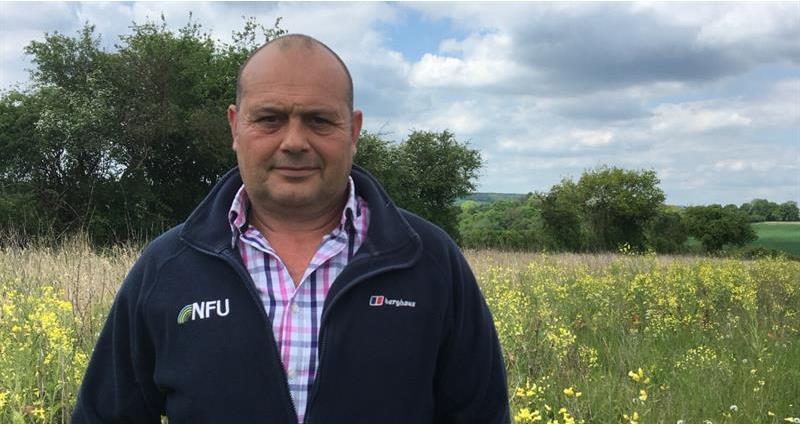He wrote:
I was not expecting to be writing my first column for Arable Farming in such a completely unknown set of circumstances. COVID-19 and the subsequent lockdown has certainly thrown up many challenges for our industry at a time when we’ve only just started to get on top of the tough last few months. The NFU crops team has been busy with other sector stakeholders working on supply chain issues and impact assessments on various commodities, such as malting barley and oilseed rape.
Our team is having daily calls to develop NFU advice for our online coronavirus hub. I also have daily Skype meetings with the other sector board chairs and officeholders to make sure that nothing is missed in the chaos of COVID-19. Listening to the other board chairs, the crops sector doesn’t seem to have been impacted as badly. There have been some issues with fuel and other input deliveries, however they seem to have been smoothed out for now.
Movement of grain and oilseeds off farm could become a problem, as the haulage industry may start to tighten in some areas of the country due to the loss of backload runs as the construction industry slows down. But by far the biggest concern for us is the slowdown in malting barley consumption due to the closing of pubs, clubs and restaurants. With this falling demand and the potential for a large spring barley crop this year, malting premiums will be hard to find and harvest movement could prove difficult. Growers should concentrate on this and start making plans to mitigate potential impacts on their farms at harvest time.
Away from COVID-19, in March I chaired my first board meeting with some fresh faces joining from the regions. I am really looking forward to working with the crops board, the new vice chairman, James Cox, and my advisors, Harriette Roberts and Chloe Lockhart. We certainly have a lot of work to do and will need to focus on some key areas. We have three consultations in the immediate future: ELMs, Red Tractor Standards Review and Urea/Clean Air Strategy. All three have the potential to impact our sector profitably and will need our close attention. Net zero carbon capture and carbon calculators are also still a work in progress. We can’t afford to take our eye off the ball with these issues, just as we can't forget about Brexit.
Currently, the politicians and their advisors are rightly concentrated on COVID-19, but when things return to normal, and they will, we need to be on the front foot with these issues. Key influencers and being ahead of the game will be critical. After COVID-19, we may potentially find ourselves in a better position as far as the government and its advisors are concerned. However, there is one thing for sure: if the powers that be do not believe that we have the answers, they will not take us seriously enough and normality will quickly return.
I would also like to take the opportunity to remind you all that the use-by date for chlorothalonil (CTL) is quickly coming around. By 20 May, authorisation for use, disposal and storage ends and it will be illegal to have CTL in your store. If you haven’t already, I urge you to contact your agronomist for help with adjusting spray regimes and certified hazardous waste disposal companies.
I would like to finish by thanking Tom Bradshaw and Jack Watts for all of their hard work over the last two years, and to wish them all the best in their new roles. To all of our country’s growers, please stay safe and take care during this pandemic. For anyone needing guidance, member or non-member, the NFU has a designated online hub for updates, advice and sector specific impact assessments. We all need support during this time so please do check in.
Coronavirus: Updates and advice
This news hub on NFUonline will be updated regularly to keep you up to date with what you need to know and how to deal with the various issues raised by coronavirus. Visit the hub.
Click here to use the NFU's COVID-19 business impact service.
By using this form, farmers and growers can provide information on any business-critical issues they have encountered, or expect to encounter, arising from the COVID-19 outbreak. The NFU will log this information and use it in an anonymised format to flag the key issues agriculture and horticulture are facing to government on a daily basis. However, no personal data will be shared with the government. The service is for all farmers and growers across the UK.
